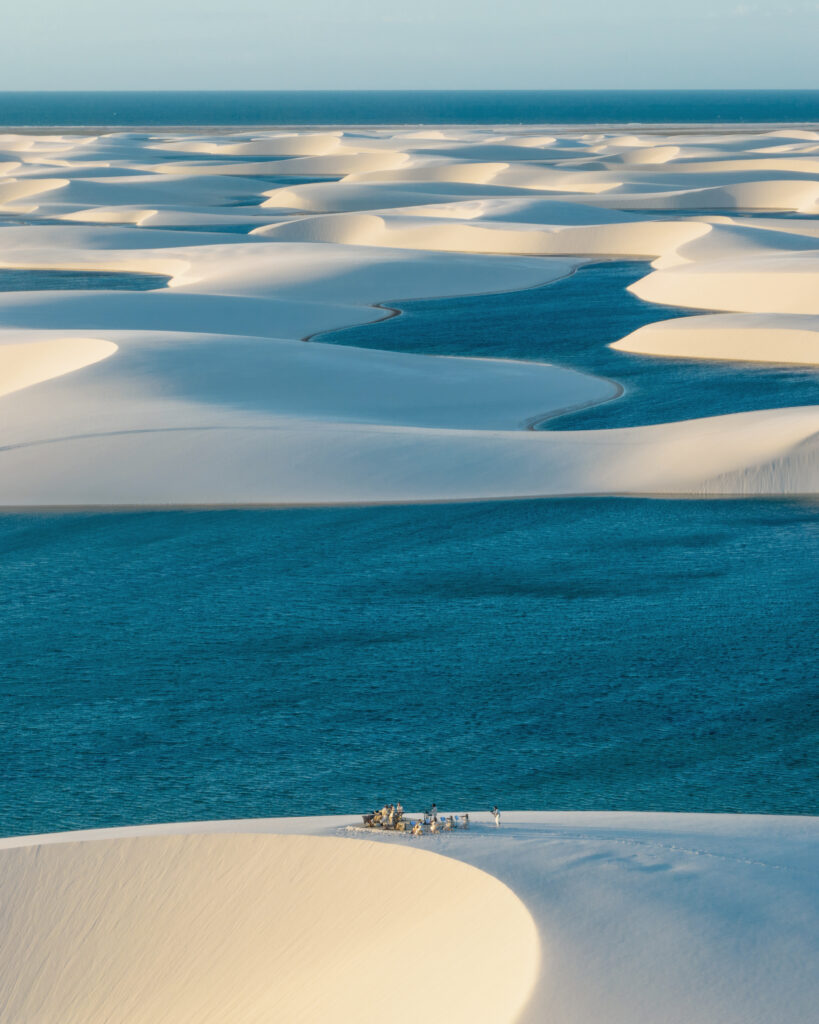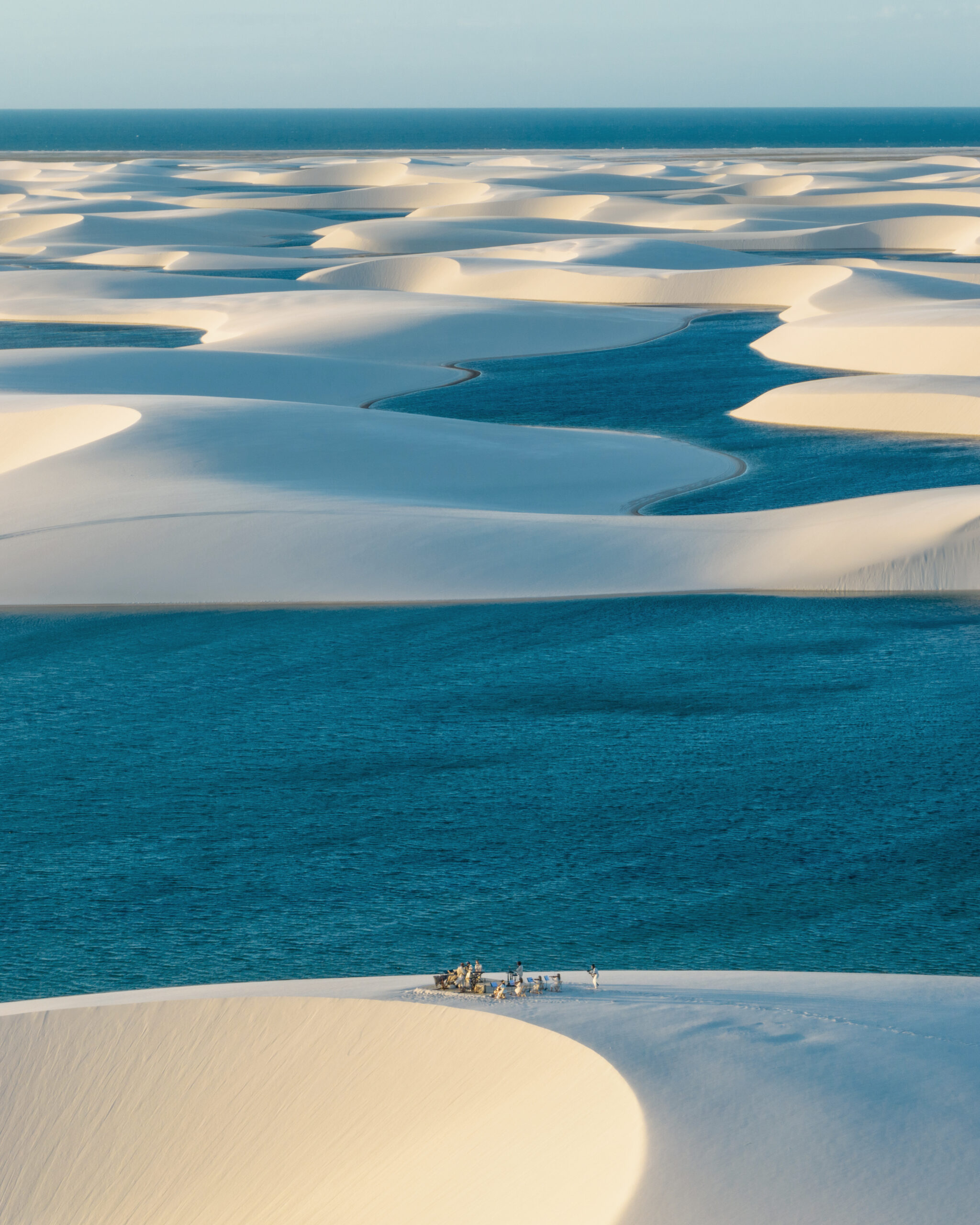Cercle is not just an event series; it’s a movement reimagining the way we experience music and culture. Founded by Derek Barbolla, Cercle seamlessly fuses the visual artistry of cinema with the universal language of sound, curating unforgettable performances in breathtaking locations. From intimate sets on the Seine to immersive experiences like Cercle Odyssey, where 5,000 fans gather around massive screens, Cercle transforms music into an unparalleled journey of connection and discovery. In an exclusive interview between Brittney Scott and Barbolla, the latter reveals the roots of his passion, the evolution of Cercle, and the groundbreaking vision driving his team forward.
Brittney Scott: Is it Circle or Cercle? *French accent*
Derek Barbolla: As you want, but I’d say Circle is fine. If it’s in French then it’s Cercle *French Accent*
BS: Tell me about your background and the beginnings of Cercle.
DB: I’ve always been very passionate about music. It comes from my parents. We listened to so much music at home—a lot of classical music, mainly, and jazz. I listened to so many artists when I was younger. Then I got pretty into rap and then electronic music. I did some music theory, piano and guitar, but that was more of a [hobby]. I studied cinema actually. I did a degree at Paris 1 Panthéon-Sorbonne University in Paris. I wanted to be a film director.
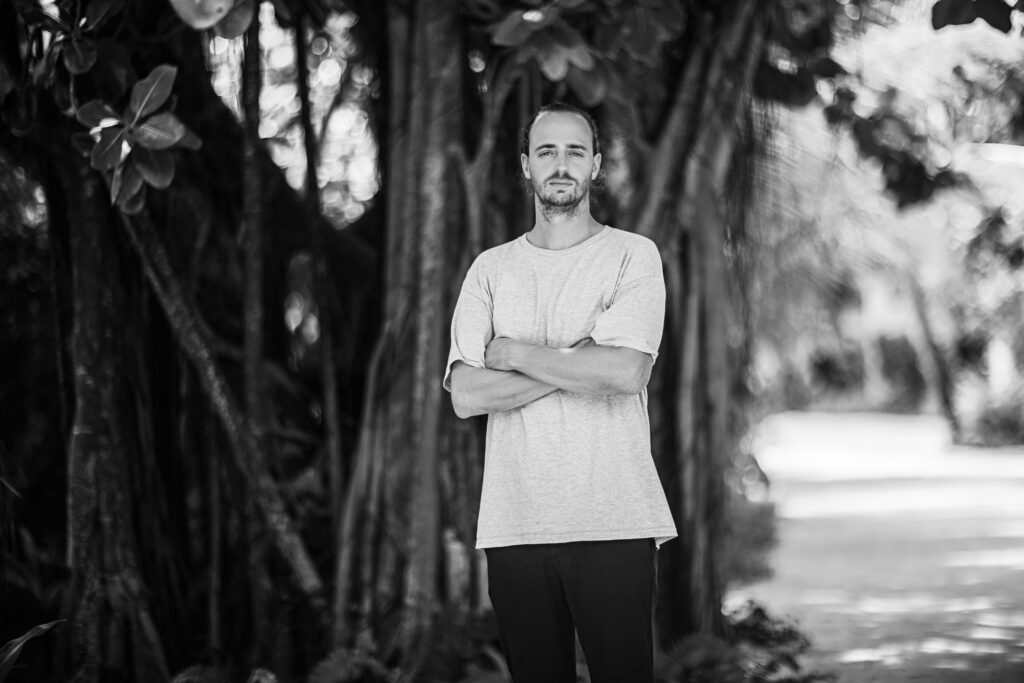
I think that Cercle is a perfect mix of my passions, music and cinema. I had to have a job just to live and eat and pay my rent, so my first job was in an artificial intelligence start-up 17 years ago. I was 18 so I was very young and I stayed for four to five years in this company. It taught me a lot of things about how tech start-ups work, so I took a lot of these things and implemented them with Cercle later.
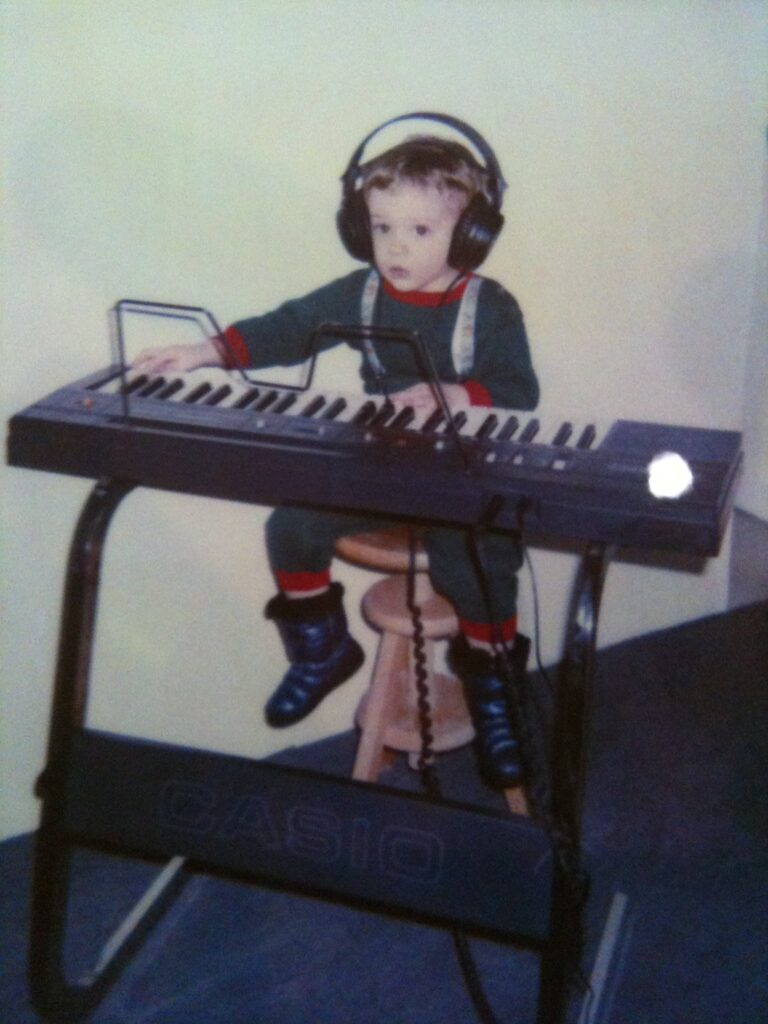
In 2016, I founded Cercle. In the beginning, it was more of a passion. I had watched so many Boiler Rooms and wanted to do my own version by adding something new visually. I started it in my apartment, in my living room, and very quickly had to export the concept because I had some trouble with my neighbors.
So I started doing these [new] events. First, it was on a boat in the Seine River, for French Music Day, then it was in a forest, then I sent a request to the Eiffel Tower on their website’s contact form in September 2016. Everything started to grow really fast for us from there. I hired people and made a real company and never stopped doing shows. I was doing a show every week. It was a very intense rhythm.
BS: This sounds so much like this was your fate.
DB: Of course. Although, I didn’t experience it that way at all.
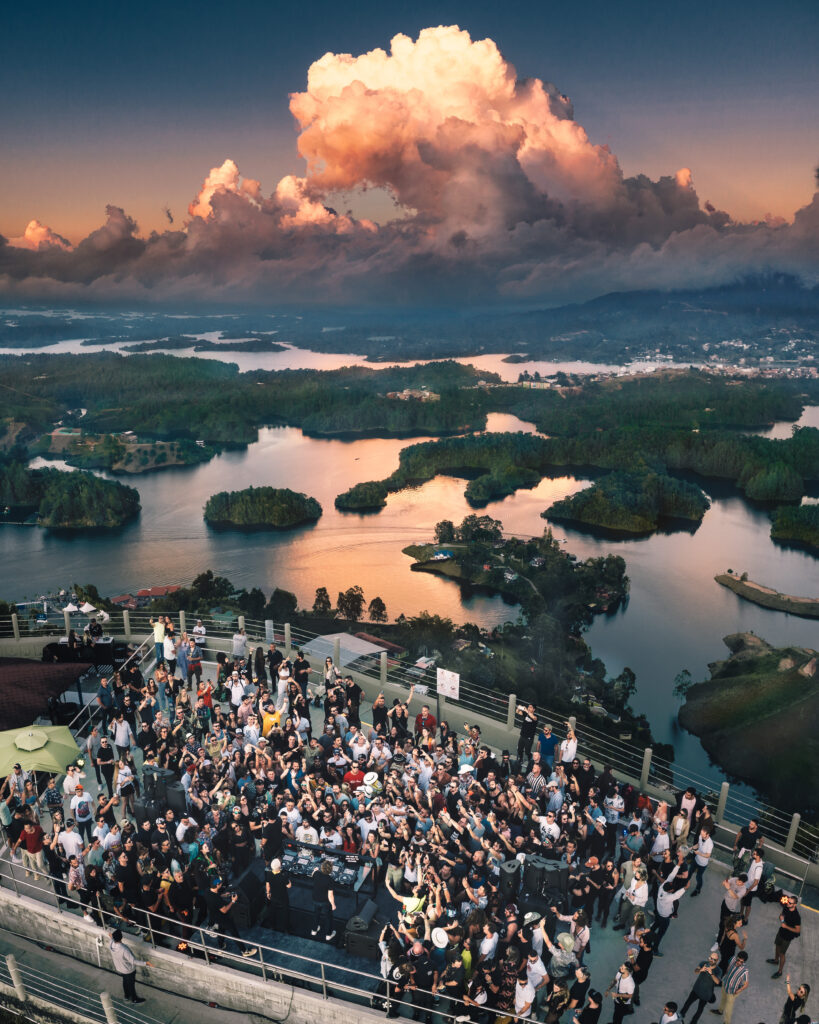
BS: Do you recall any specific pieces of music or albums that you really liked that your parents played often? Also, who’s your favorite rapper? Favorite album?
DB: I was just speaking with the manager of Max Richter who we just announced as our first artist for Cercle Odyssey. We discussed that in their music, in some of the interludes, they’ve used “The Goldberg Variation” by Bach, the composer. I listened to that I think 100 or 200 times, the reinterpretation by Glen Gould. This is a song that reminds me of my childhood. Also, “The Four Seasons” by Vivaldi. For Jazz, it was Ray Charles. I also listened to a lot of reggaeton because of my sister, who is nine years older than me. At 11, I was listening to classics like Don Omar and Daddy Yankee. I still listen to reggaeton. For rap, I really listened to a lot of French rap. When I was like 14 or 15, my favorite French rappers were Sefyu, Médine, and Sinik. In terms of electronic music, it started when I was 16, with Benny Benassi. That was the first one I can remember. So fun.
BS: Let’s talk about Odyssey and Moment.
DB: Cercle Moment is a project that we started in 2021. The idea came about during COVID. We were traveling a little bit because we were doing these shows without audiences. From nearly the beginning of Cercle, we have had a lot of crazy experiences. You know, when you are traveling in a country that you don’t know at all, but you are with the right people, local people that can show you the right face of the country…that’s what we were experiencing ourselves with the Cercle team during these filming sessions. We discovered so many great things and so much great food and so many perfect musical moments. For example, in the show we did with Ash in the White Desert in Egypt, we had a jam with the whole team with his instruments and others we’d brought. It was a very precious moment. At some point, I thought, why should we be the only ones to have this experience? We should share this with our audience. That’s how Cercle Moment started. It’s the “travel agency” side of Cercle.
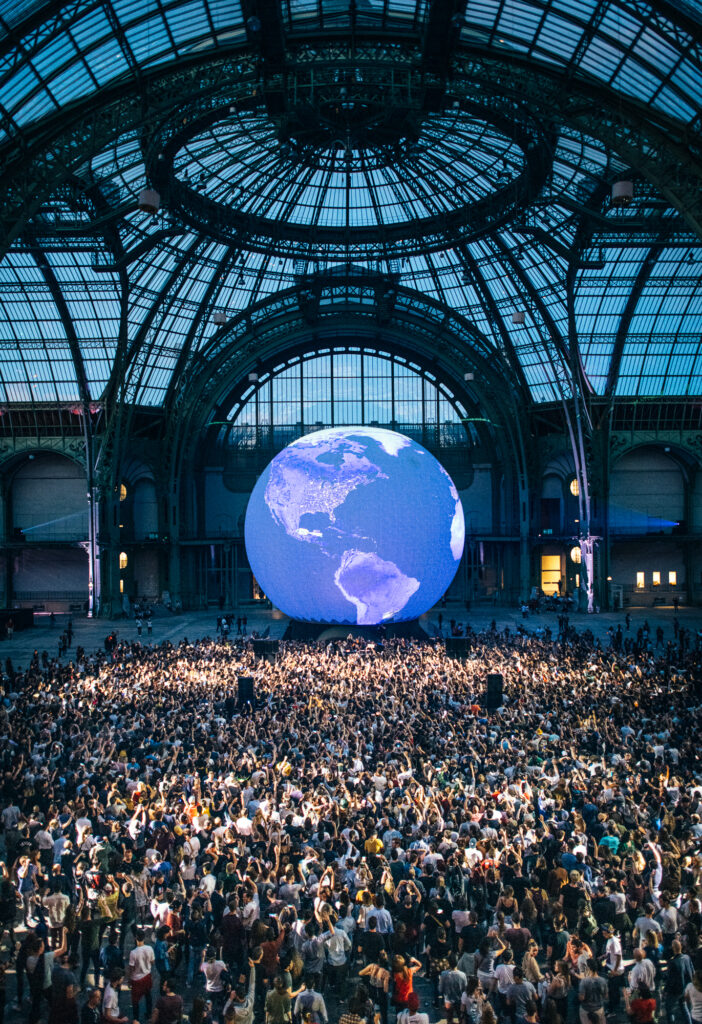
Cercle Odyssey is really different. It’s the next creative step of the Cercle experience with local shows. The idea happened not so long ago, the summer of 2023. To put it in a nutshell, it’s a series of immersive solo shows. We’ve announced the first three cities, Mexico, LA, and Paris. We will have 10 different shows per city. Artists will play inside a very special immersive structure. There will be an audience of five thousand people with the artist in the center and the audience surrounded by 50×12 meter screens.
BS: Epic.
DB: Cercle is about bringing an artist and an audience to nature or culture, while Odyssey is more about bringing nature to people in their city. I wanted to find a concept where we could be closer to the people’s homes. It’s very difficult for people to travel, for example, you know, to Piz Gloria-—the Stephan Bodzin one. It’s 4,000 meters high, you have to pay for your ticket and pay for your travel, et cetera.. I wanted to bring the experience closer to them.
BS: I’m curious about the hospitality aspect of Cercle. What is it that you pride yourself on when it comes to hospitality and that part of the experience?
DB: We have always made a lot of effort in our hospitality. The audience will always give it back to you when you treat them well, you know. I’ve never done this in terms of calculation or anything. It was something I realized afterward. I saw that our audience was very respectful and nice and had good vibes. I hope someday you come to one of our events to be able to testify.
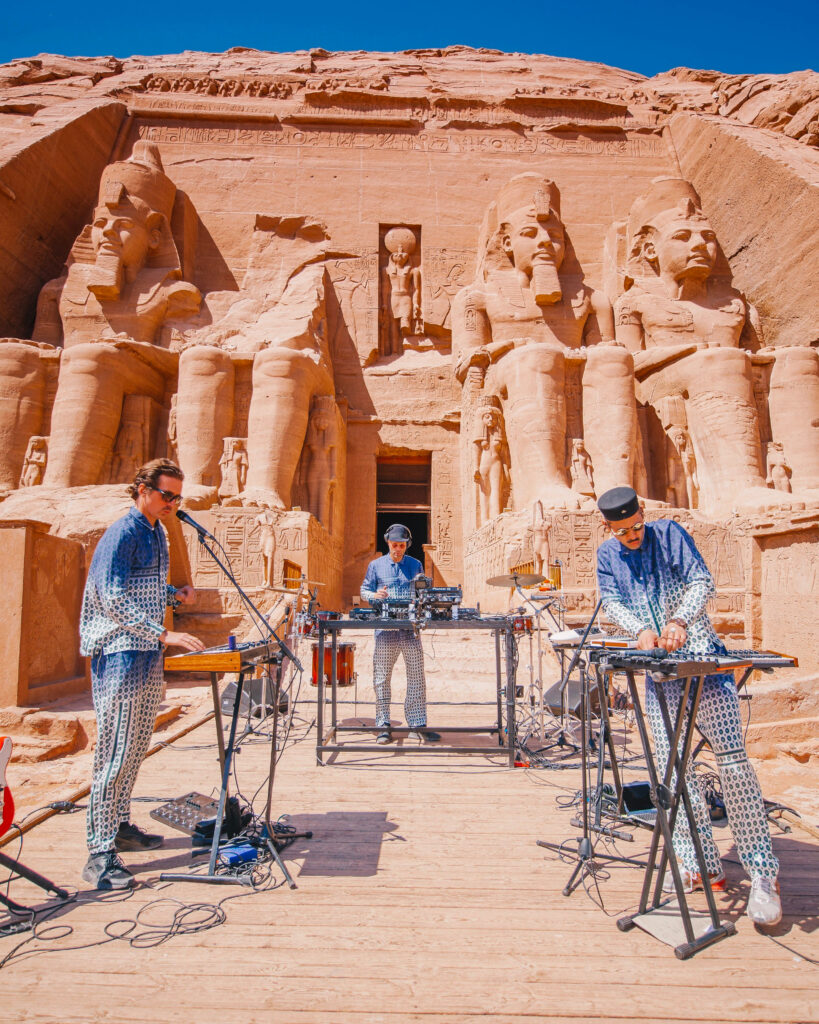
BS: Dying to!
DB: At the fest, everyone was very happy and always smiling and I think it’s because first of all, the event is something special, people know it’s unique and probably won’t happen twice in this setting. Also, we’ve always made sure to not make people wait—at the entrance, at the bar, at the toilets, which is something that I think should be normal. Of course, it’s difficult because it’s very expensive to put a lot of toilets and security, et cetera. In the beginning of Cercle, we had to prove to the venues we were working with that we care not only about the audience, but also about the location, which is very fragile. So we’d always put like twice the amount of everything to make sure we’d have a secure event. We made some mistakes as well in the past. I remember the first festival we did we made a lot of mistakes in terms of how much security to have, the number of lines at the entrance, but we learned a lot from these experiences. Now our prime goal for the production team is zero waiting at the entrance line, zero waiting always.
BS: Amazing. I cannot stand waiting in line. I’m the type of fan that wants to be there from beginning to end so I don’t have time to wait in lines!
DB: I understand you.
BS: I wanted to hear a bit more about you specifically and your experiences. I’m curious about festivals or parties that inspired you. you mentioned Boiler Room. Were there any other ones that made you go, Oh shit, this is awesome. Maybe I can do this too.
DB: It was Mr. Oizo and Busy P at Rex Club back in 2009. I was 20. I remember I went with Mathieu, a very good friend of mine, who is also working on Cercle as a video curator. We also studied together at the cinema. Yeah, so people were just so crazy-they were hanging from the ceiling, just crazy, you know? I remember the atmosphere—it was this very powerful atmosphere of how music can unite us together but also make us a bit crazy. That’s what I love though, the energy from the people.
BS: What’s the most unexpected lesson you’ve learned from being the founder of Cercle?
DB: Something I really learned is to focus on the process and not just the outcome.
BS: Classic!
DB: *Laughs* Classic. but I really understood that after all these years, you know. I’m someone who has a lot of ideas and wants to do a lot of things. The ideas are not so important but more so the process and how you make it a reality, how you make it work.
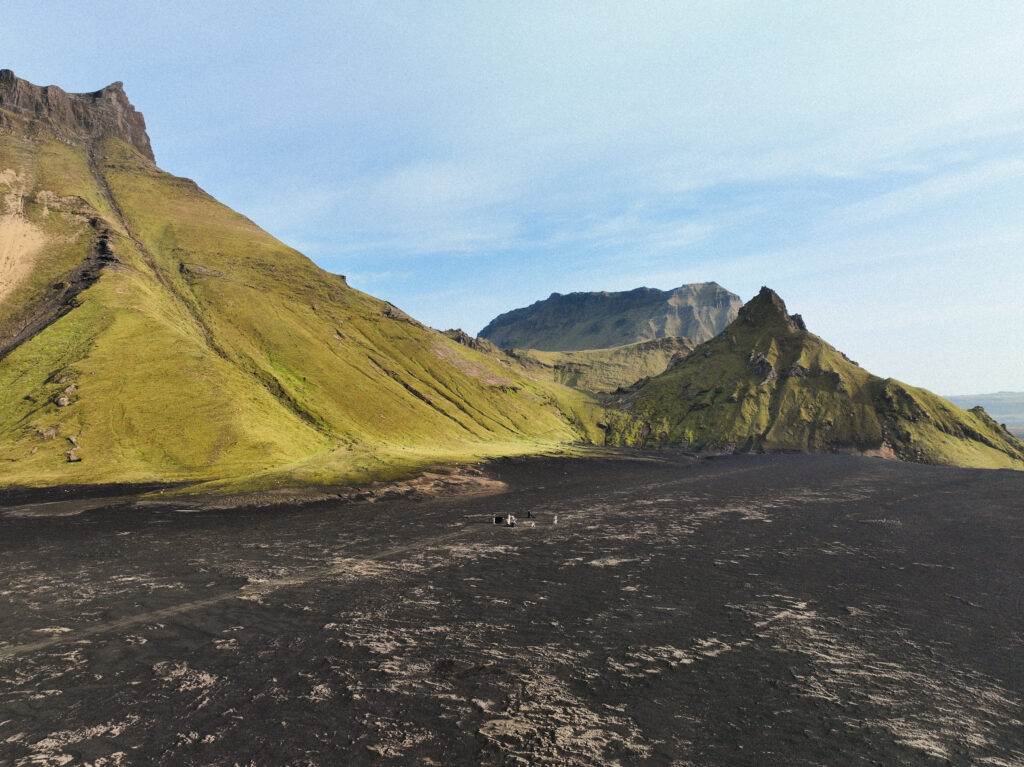
BS: How did you manage this big shift in your team growing so quickly and the emotions of overseeing things rather than being super, super close to it?
DB: It was very hard for me to let it go but I needed to. Otherwise, it wouldn’t work. The process was hard, but I put my trust in the people I have on my team, the ones who know me very well and know what I expect. I hired some people like, for example, Francois and some others to consult us on this. Something I learned is to speak very, very precisely what I have in mind all the time, which I did not in the past because I didn’t have to. I didn’t really have to do it because it was a small team, but now I need to explain everything like why and how we will achieve this. It’s a new process for everyone, but we trust each other and that’s the key. Let it go and trust the other in their work and everything will work great when you enter into this state of mind.
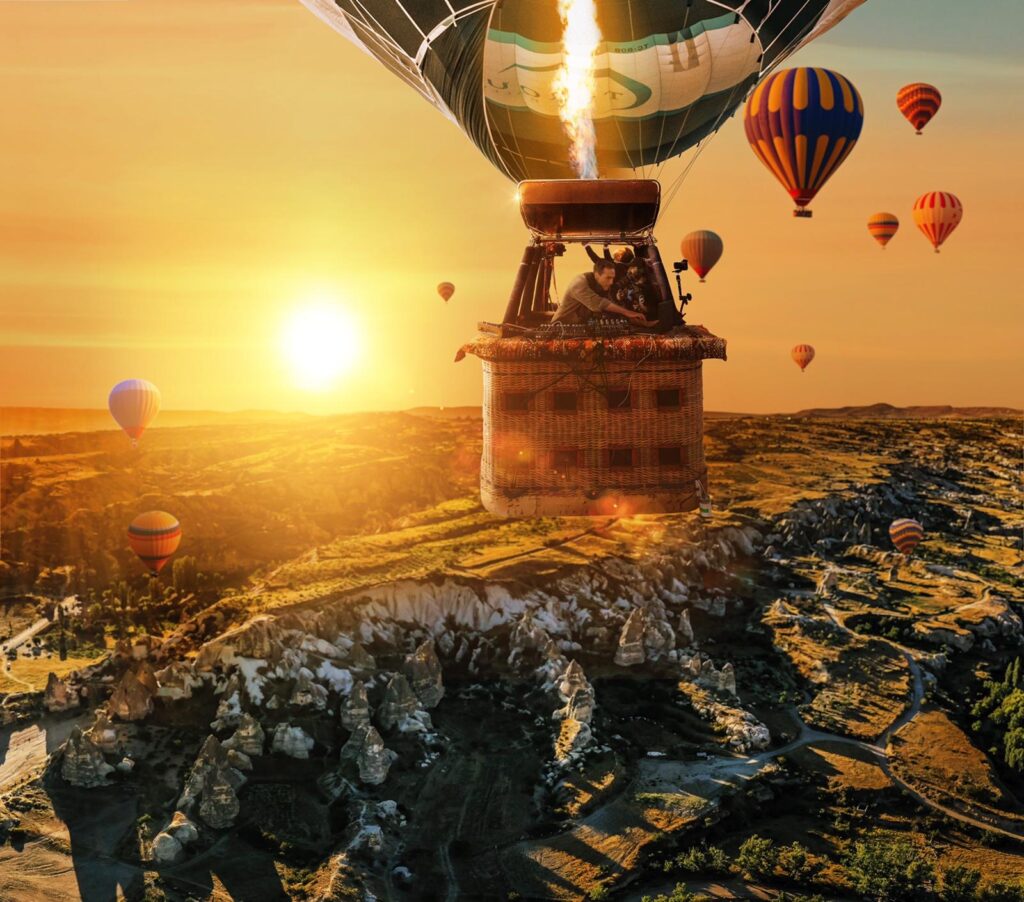
BS: Nice. What about Cercle’s impact on music & social media—have you seen any impact?
DB: Yes, but it’s been difficult to analyze that because I’m like “inside the nucleus.” I think we’ve had an impact with the way that we’ve presented electronic music in broad daylight. I think it’s changed the way people in general and even maybe older people see electronic music. The perception of electronic music was kind of bad some years ago but I think that the way we showcased electronic music and linked them to heritage sites or nature made electronic music more accessible for people. They compared it less to nightclubs and night and drugs and alcohol and more like, Okay, it’s music, it’s art.
BS: Whats something funny you experienced during one of your events either during it or in the production process?”
DB: In 2017, during the show with The Geek x VRV, we had a technical livestream failure during the show. 30 minutes after the show started, we decided with the artist management to start the show all over again to have a clean livestream video, so, in front of 500 people, I had to announce this on stage, the audience was really nice and the band started all over again the show, and the live stream succeeded!
Discover More
